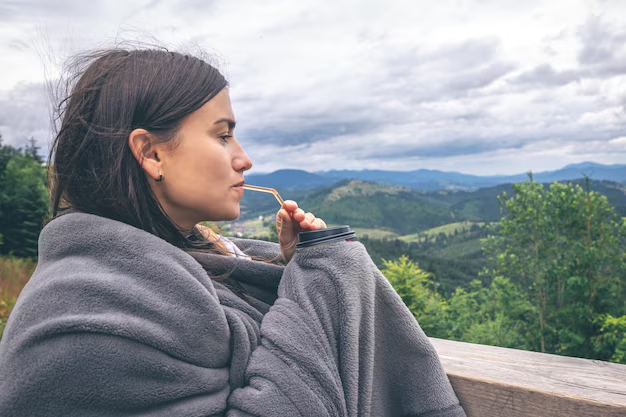Understanding Pneumonia: How It's Caught and What You Need to Know
When the chill of the season sets in, and you're wrapped in layers to combat the cold, you may have heard someone caution against catching pneumonia from staying outdoors too long. But what does it truly mean to "catch pneumonia"? While pneumonia is a common and serious illness, misconceptions abound regarding its transmission and prevention. Let's delve into the realities of pneumonia to empower you with clear, practical knowledge.
What Exactly is Pneumonia?
Pneumonia is an infection that inflames the air sacs in one or both lungs. The air sacs may fill with fluid or pus, leading to symptoms like cough, fever, chills, and difficulty breathing. The severity can range from mild to life-threatening, making it crucial to understand its implications.
Causes of Pneumonia
Various microorganisms can cause pneumonia, including bacteria, viruses, and fungi. The most common type is bacterial pneumonia, often stemming from the bacterium Streptococcus pneumoniae. Viral pneumonia can be caused by the flu virus, among others. Less commonly, fungi from soil or bird droppings, especially in immunocompromised individuals, can lead to fungal pneumonia.
Can You Catch Pneumonia Like a Cold?
The phrase "catching pneumonia" is somewhat misleading. Unlike contagious diseases that spread directly from person to person, pneumonia itself isn't caught from another person's coughing or sneezing. However, the germs that cause pneumonia, such as certain bacteria and viruses, can be spread and potentially lead to pneumonia in different individuals.
Transmission Pathways
Pneumonia can develop when one inhales airborne droplets from a cough or sneeze. Here’s how it commonly happens:
- Direct Contact: The spread of germs via handshakes or touching contaminated surfaces.
- Airborne Exposure: Breathing in tiny droplets containing the infectious agent.
- Pre-existing Infections: A respiratory virus like the flu can progress to pneumonia.
Recognizing the Symptoms
For effective awareness, it’s important to recognize the symptoms that might indicate pneumonia:
- Persistent cough: Often producing phlegm.
- High fever and chills: Accompanied by sweating.
- Shortness of breath: Even during normal activities.
- Chest pain: Especially when coughing or breathing deeply.
- Fatigue: General feeling of tiredness and weakness.
Who's Most at Risk?
Certain groups are more susceptible to developing pneumonia:
- Infants and young children: Their developing immune systems can be inadequate against the invading pathogens.
- Older adults: Aged 65 and above might have weaker immune responses.
- People with chronic conditions: Such as asthma, diabetes, or heart disease.
- Smokers and alcohol consumers: Their lifestyle choices can compromise lung health.
- Immunocompromised individuals: Those with weakened immune systems due to various medical conditions or treatments.
Prevention Strategies for Pneumonia
Prevention remains a vital strategy in handling pneumonia. The following steps can significantly reduce the risk:
Vaccinations
Vaccines can prevent pathogens that often lead to pneumonia:
- Pneumococcal vaccine: Protects against Streptococcus pneumoniae.
- Influenza vaccine: Reduces risk by preventing flu-related complications.
Maintaining Hygiene
- Regular handwashing: Essential in avoiding the transfer of germs.
- Avoiding smoking: Sustains lung function and immune response.
- Healthy lifestyle choices: Balanced diet, regular exercise, and adequate sleep bolster immunity.
Treatment Options: What to Expect
When pneumonia is suspected, medical evaluation is vital to determine the cause and severity. Here’s an overview of potential treatment paths:
Medical Diagnosis
- Chest X-rays and Blood tests: Confirm the infection and identify the causative microorganism.
- Sputum Test: To analyze the presence of pathogens in the mucus.
Treatment Modalities
- Antibiotics: Effective against bacterial pneumonia.
- Antiviral medications: Useful for treating viral types.
- Hospitalization: Required in severe cases for intensive treatment, such as oxygen therapy or intravenous antibiotics.
Home Care for Pneumonia
Most mild pneumonia cases can be managed effectively at home with:
- Adequate rest: Supports recovery.
- Hydration: Keeps mucus thin, aiding in expulsion.
- Fever management: Using over-the-counter remedies to reduce discomfort.
Misconceptions About Pneumonia
Beliefs about pneumonia often muddle understanding, potentially delaying proper treatment or prevention. Let’s tackle some misconceptions:
- "Cold weather causes pneumonia." While cold air doesn't directly cause pneumonia, it can lead to conditions fostering bacterial or viral infections.
- "Healthy adults never get pneumonia." Anyone can contract pneumonia, though risks vary.
- "Pneumonia vaccines are only for the elderly." While older adults are prioritized, others at high risk should consider these vaccines upon medical advice.
Why Early Intervention Matters
Timely recognition and treatment of pneumonia can drastically improve outcomes and prevent complications. Better understanding empowers individuals to seek medical attention before the infection becomes life-threatening.
Encouraging discussions on these topics not only boosts health literacy but also equips individuals with essential preventive strategies. For those at risk, discussions with healthcare providers are encouraged to tailor prevention and care solutions effectively.
Looking Ahead
While pneumonia poses serious health risks, awareness and preventive measures can mitigate these dangers. Prioritizing vaccinations, maintaining hygiene, and recognizing potential symptoms early are foundational to better health outcomes. Understanding pneumonia equips communities to react proactively, leading to healthier populations.
Key Takeaways 📝
- Pneumonia is an infection: It inflames the lungs, caused by various pathogens.
- Transmission: Not transmitted like a cold, but germs responsible can spread.
- Preventive measures: Vaccinations, hygiene practices, and healthy lifestyles.
- Recognize symptoms early: Seek treatment for better outcomes.
- Vaccines are crucial: Not just for older adults but other at-risk groups as well.
By understanding pneumonia's nature and implementing preventive strategies, we take strong steps towards minimizing the burden of this serious condition.

Related Articles
- a Typical Pneumonia
- Can a Cold Turn Into Pneumonia
- Can a Sinus Infection Turn Into Pneumonia
- Can Amoxicillin Cure Pneumonia
- Can Amoxicillin Treat Pneumonia
- Can Baby Oil Cause Pneumonia
- Can Bronchitis Turn Into Pneumonia
- Can Covid Turn Into Pneumonia
- Can Doxycycline Treat Pneumonia
- Can Flu Turn Into Pneumonia
